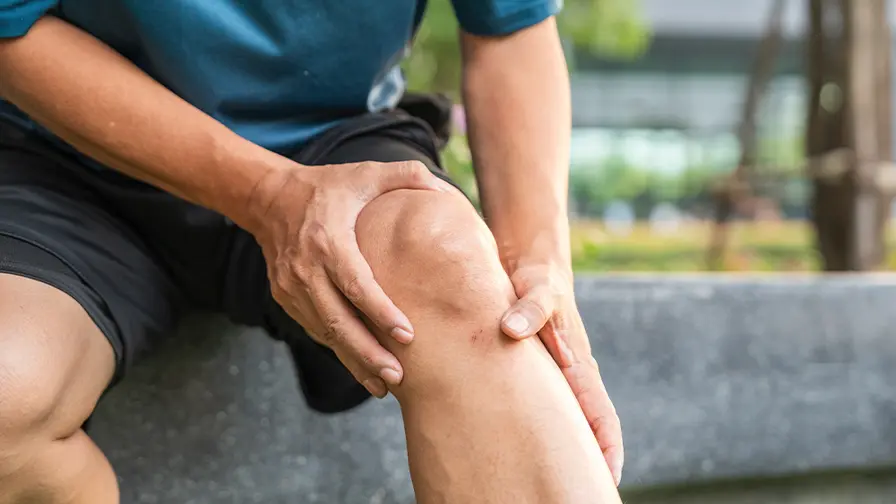Do your knees start to degenerate after you turn 40? Famous doctor reveals signs: Pay attention to "strange noises" when your knees bend

Famous doctors reveal the truth about knee joint degeneration! Repeated friction of “2 parts” is an important reason
In his book “Save Your Own Knees: The Truth About Degenerative Knee Arthritis”, Dr. Lu Shaorui found that based on long-term clinical research at the Degenerative Knee Arthritis Research Laboratory affiliated with the Joint Center of Dalin Tzu Chi Hospital: the medial fold and medial femoral condyle have deteriorated over time. The “medial friction phenomenon” caused by mutual friction is an important reason for the “degeneration” of the knee joint.
Dr. Lu Shaorui pointed out that among patients over 40 years old and diagnosed with “degenerative” knee arthritis, 95% of knee pain is actually caused by “medial friction phenomenon” caused by medial folds. This phenomenon is caused by repeated friction (or due to a single injury) between the medial fold and articular cartilage, which leads to inflammation, which in turn triggers a series of clinical symptoms, which is called “medial friction syndrome”.
Dr. Lu’s research team is committed to defining this new term that has not yet been recorded in medical textbooks and writing related research papers. After rigorous review and a long wait, the paper was accepted and published in the important medical journal “Medicine” in 2015.
Is it possible for knees to degenerate at the age of 40? What is “medial friction syndrome”?
In addition, Dr. Lu Shaorui also wrote a paper comprehensively explaining the role of “medial friction phenomenon” in the “degeneration” process of knee joint cartilage. This paper was also published in “Medical Hypotheses” in 2015. He emphasized that this friction phenomenon is one of the important causes of knee joint inflammation, especially among patients over 40 years old.
In order to further understand the relationship between “medial friction phenomenon” and knee joint degeneration, Dr. Lu’s team conducted a series of in-depth investigations on 163 patients over 40 years old who were confirmed to have “medial friction phenomenon” by arthroscopy. These findings have become an important basis for the clinical diagnosis of “degenerative” knee arthritis and provide more targeted reference materials for treatment.
Pain that leads to insomnia at night and “clicking” sounds in joints may be a sign of degenerative arthritis
Knee pain is one of the common symptoms of degenerative knee arthritis. According to Dr. Lu Shaorui, this pain usually presents as a deep throbbing or cutting-like feeling, which is especially likely to occur when climbing stairs (especially going down stairs). The pain can also be significantly worse when you suddenly stand up and straighten your knee joint after sitting for a long time. This pain may even make it difficult to fall asleep and find a comfortable sleeping position at night. Some patients can clearly describe the location of the pain, which is usually centered on the anteromedial aspect of the knee.
In addition to pain, friction is also one of the problems patients often encounter. Dr. Lu pointed out that when the knees bend, stand up after sitting for a long time, or suddenly change positions, the knees may make a crisp snapping or rubbing sound. These sounds are sometimes accompanied by pain, making the patient feel even more uncomfortable.
Other patients experience the knee catching or locking. Dr. Lu Shaorui explained that some people may occasionally feel that their knee joints suddenly become weak and cannot use force normally, or they may feel that their knees are “locked” in certain postures. These phenomena usually occur when the knees are half-bent and weight-bearing, or when you suddenly stand up and walk after sitting or lying down for a long time, the knees may also lock. At this time, the patient needs to stand for a few minutes and swing the knee slightly to resume normal activities.
Further reading:





